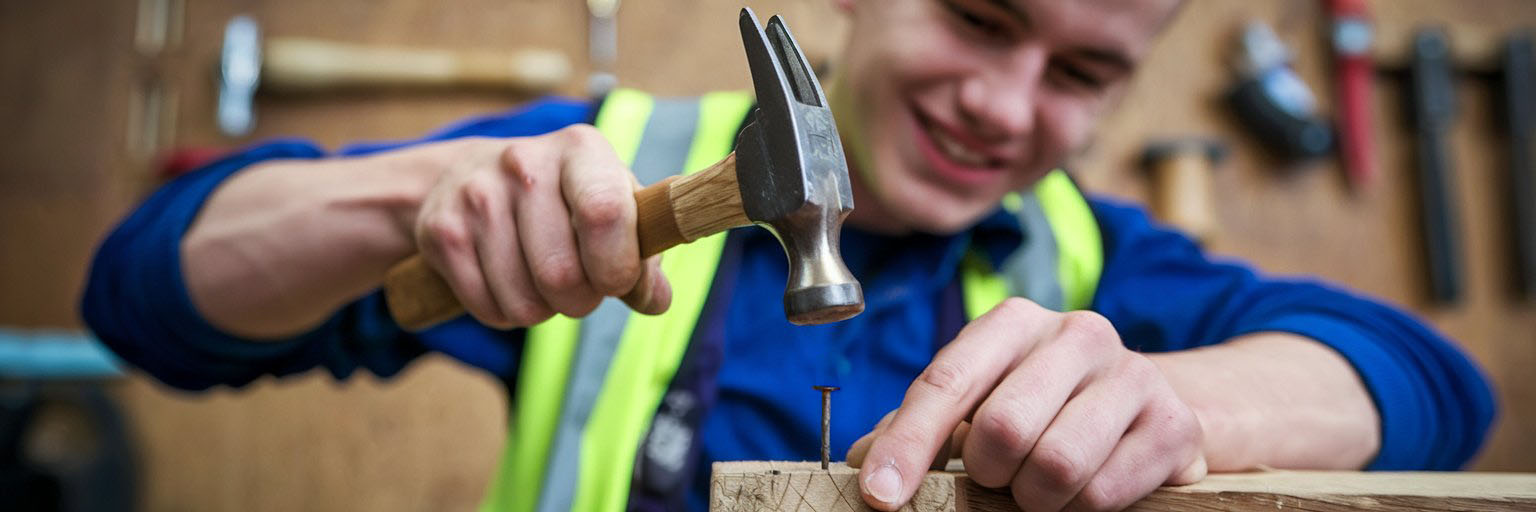Plumbing and Domestic Heating Technician (Apprenticeship)
Plumbing and Domestic Heating Technicians plan, select, install, service, commission and maintain all aspects of plumbing and heating systems. Plumbing and domestic heating technicians can find themselves working inside or outside a property. Customer service skills and being tidy and respectful are important qualities as they can often find themselves working in customers' homes as well as on building sites.
Apprenticeship Standard: ST0303
-
Description
As a competent Plumbing and Heating Technician, the installation of plumbing and heating systems includes accurate measuring, marking, cutting, bending and jointing metallic and non-metallic pipework. Appliances and equipment can include gas, oil and solid fuel boilers as well as pumps, heat emitters, bathroom furniture or controls as part of a cold water, hot water, and central heating or above ground drainage and rainwater systems. Plumbing and Domestic Heating Technicians are at the forefront of installing new and exciting environmental technologies like heat pumps, solar thermal systems, biomass boilers and water recycling systems. It is important for a plumbing and heating technician to be able to work independently or as a team and use their knowledge and skills to ensure that both the system and appliances are appropriately selected and correctly installed, often without any supervision, and done so in a safe, efficient and economical manner to minimise waste.
An apprenticeship is a genuine job and under all circumstances an apprentice will be employed from day one. Apprenticeships combine practical training in a job with study.
-
Entry requirements
Apprenticeships are available to anyone over the age of 16, living in England and have no upper age limit. Any vacancies will clearly state what the entry requirements are for the job role being advertised. There will be different entry requirements depending on the company and role.
A minimum 5 GCSEs at grade 4/C or above, including maths and English are recommended for this apprenticeship. Individuals without level 2 English and maths will need to achieve this level and take the test for level 2 English and maths prior to taking the end-point assessment.
An keen interest in plumbing and heating.
-
Qualification
Apprenticeship Standard: ST0303 Plumbing and Domestic Heating Technician
-
Progression
Achievement of this programme may lead to other higher education programmes or progression within employment.
-
Assessment
Through their apprenticeship, apprentices gain the technical knowledge, practical experience and wider skills they need for their job and career. Apprentices will have their skills, knowledge and behaviours evaluated at the end of their apprenticeship by taking an end-point assessment (EPA). This is known as synoptic assessment. Individuals without level 2 English and maths will need to achieve this level and take the test for level 2 English and maths prior to taking the end-point assessment.
-
Home study
The apprentice is expected to study through a mix of learning in the workplace, formal off-the-job training and the opportunity to practise new skills in a real work environment. The time spent on off-the-job training should be at least 20% and should be included as part of working hours. The employer must allow time to complete the apprenticeship within the working hours, however, some homework may be set by College Tutors or Development Coaches.
-
Work placement
This is a work-based programme and is studied as part of an apprenticeship.
-
Fees and additional costs
If you are between the ages of 16 and 24, you will not have to fund your own tuition, it is your employer and the government who cover the fees. If you are over 25, you may be asked to contribute towards the cost of your training, but it depends on your employer. If you do have to contribute to the cost of training, you may be eligible for an Advanced Learner Loan.
The cost of training an apprentice is dependent on their age and whether or not the business pays the Apprenticeship Levy. There are a range of different grants and incentives available to employers. Contact us for up-to-date information and advice on the funding support available.
* Terms and conditions apply. The fees stated on this website are for guidance purposes only and should be checked before enrolment. Unless otherwise stated, fees shown are for tuition only, over one academic year. Where a course is longer than one academic year, the fees stated are for the first year, and the cost of the second or subsequent years will be discussed at interview. For details of fee remission for students over 19 click here. If you think you may be entitled to a concession or fee remission, or you would like more information on the additional costs associated with your chosen course, please contact us on 01635 845000 or email This email address is being protected from spambots. You need JavaScript enabled to view it..
